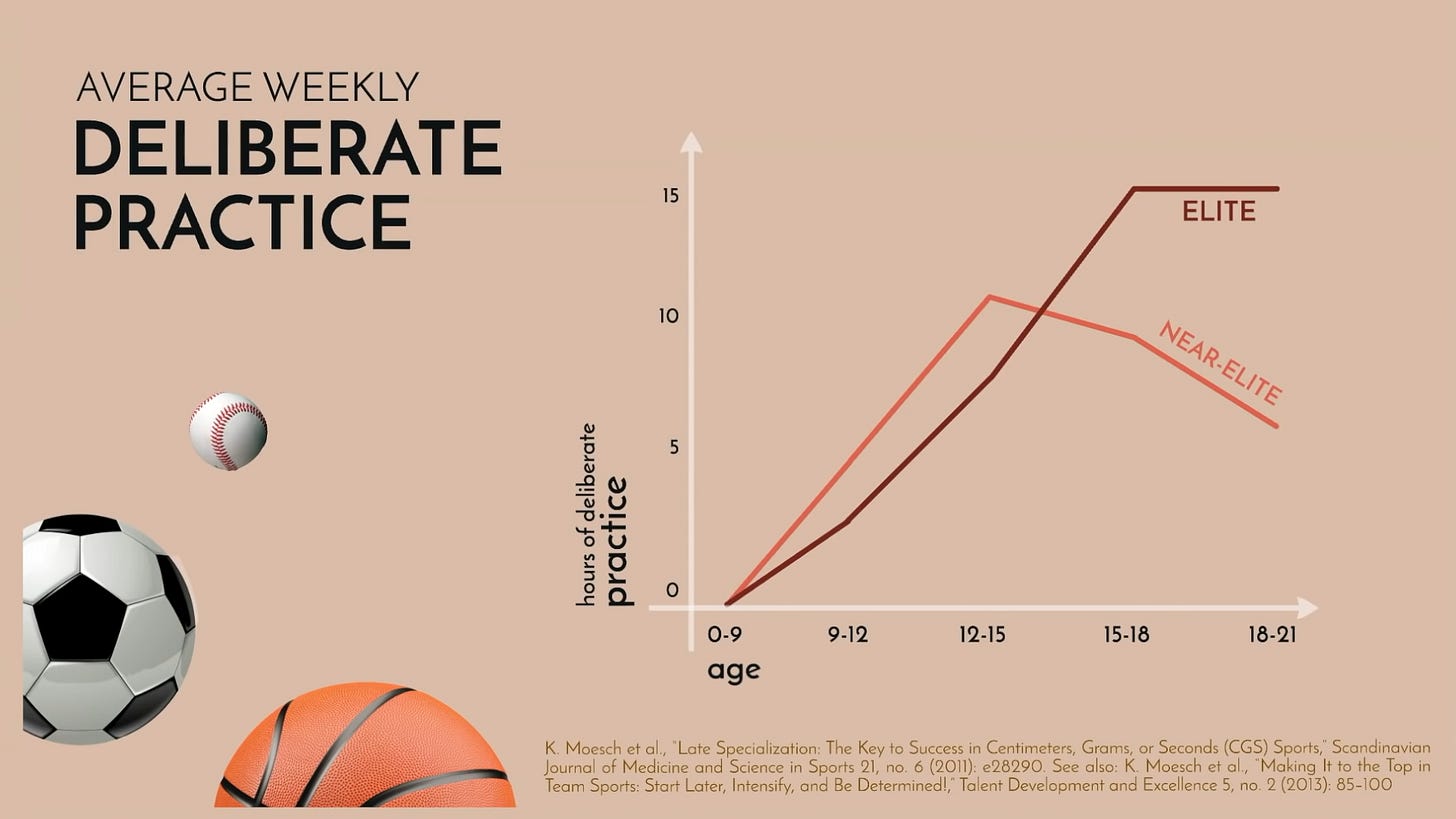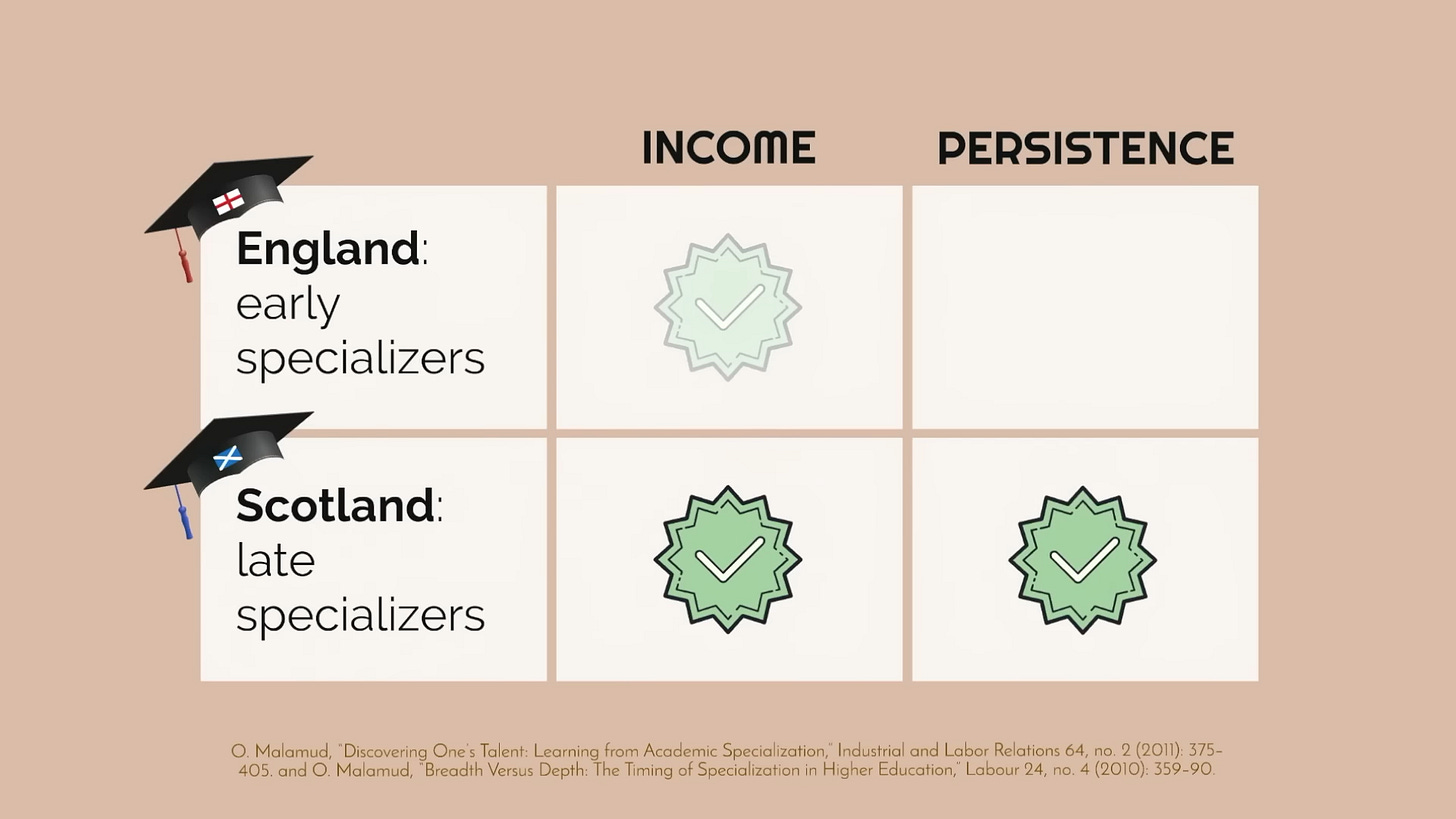As part of my personal development routine, I have added watching at least one TED video every week. Last week, I came across a thought-provoking video titled "Why specializing early doesn't always mean career success" by David Epstein.
This video resonated with me on many levels, particularly with regard to making career choices under pressure from family, friends, or the educational system itself. It also addresses the dilemma of feeling unfulfilled in a chosen career path due, it is not necessarily aligned to our passions.
I can personally relate to this, as my dream has always been to become an Electronic Engineer until I started working in the field and realized it was not really my thing. This was only possible due to my previous exposure to entrepreneurship, so I had then something to fall back to.
In his TED talk, David Epstein explores the development of human potential and challenges the widely known Ten-Thousand-Hour Rule, popularized by Malcolm Gladwell, which suggests that achieving mastery requires at least ten thousand hours of focused practice.
While we often hear advice about embracing our own development and that the real competition is against ourselves, it doesn't necessarily address the internal pressure of not knowing where to invest those ten thousand hours in the first place. It gets even worse when we realize that we might be dedicating ourselves to an unfulfilling craft.
In his book, Outliers, Malcolm Gladwell makes reference to various extraordinary stories on personalities like Tiger Woods - whose father gave him a putter at 7 months old, at 10 months he started imitating his father’s swing, at 2 years old he was already on national television and by 21 the greatest player in the world.
Intrigued by this, David Epstein's created a hypothesis that if the ten-thousand hours were the only means to achieve success, it would be a trend seen in the trajectory of every top athlete.
He discovered that future elites in various domains spent less time in deliberate practice early on in their eventual area of mastery. Instead, they went through a period called the "Sampling Period," where they explored a variety of physical activities, gained broad general skills, learned about their interests and abilities, and delayed specializing until later.
Further research proved that although the sampling period varied in duration, it is an extremely common trend, even within domains often associated with early specialization.
Another study referenced in the TED talk compared the higher education systems of England and Scotland. While England required students to specialize in their mid-teen years, Scotland allowed them to explore different courses at university.
The study revealed that although early specializers initially had higher incomes due to their domain-specific skills, late specializers ultimately achieved greater long-term success. Late specializers had the opportunity to try different paths, leading to a better fit and faster development. In contrast, early specializers often made poor choices because they were forced to decide at a young age.
This article does not discredit the importance of deliberate practice and the benefits of mastering one craft over time. It emphasizes the significance of exposure and exploration before choosing an area of specialization. It also highlights the value of having multiple mental models and that it is okay if you choose to be an expert in integrating various specializations instead.
As David Epstein quotes the author Freeman Dyson, "For a healthy ecosystem, we need both birds and frogs. Frogs are down in the mud, seeing all the granular details. The birds are soaring up above, not seeing those details, but integrating the knowledge of the frogs—and we need both. The problem is that we are telling everyone to become frogs."
As you go through sampling periods across different aspects of your life, I hope you do not lose enthusiasm for trying different things, exploring new interests, knowing yourself better, and pursuing what sets your soul on fire.
Reference(s):
TED. (2021, September 21). Why specializing early doesn't always mean career success | David Epstein [Video]. YouTube. www.youtube.com/watch?v=B6lBtiQZSho
National Library of Medicine. (2015, September-October). The 10 000-hour rule. Retrieved from www.ncbi.nlm.nih.gov/pmc/articles/PMC4662388
Malcolm Gladwell. (n.d.). Outliers. Retrieved from www.gladwellbooks.com/titles/malcolm-gladwell/outliers/9780316017930





